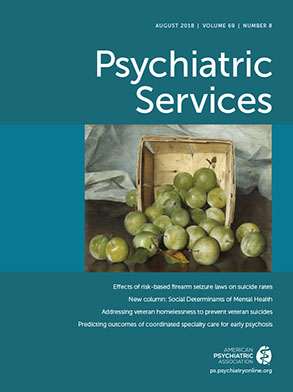Successful transitions from inpatient care to the community often demand navigating a complex, fragmented health care system. Extended hospital stays lead to additional challenges; patients often have not been effectively connected to ambulatory care and are frequently ill prepared for community living. Traditional case management services often do not adequately meet the needs of individuals with severe mental illnesses who are transitioning from inpatient to outpatient care; many remain disconnected from services and have high readmission rates.
In 2014, Coordinated Behavioral Care (CBC) implemented an innovative care transitions program called Pathway Home (PH), which has, through a multidisciplinary approach and use of critical time intervention, significantly improved community outcomes after long-term inpatient hospital stays.
Immediate response to referrals and intake within 24–48 hours are key components of the program. An intake specialist enrolls patients well in advance of their hospital discharge. By beginning engagement before discharge, the PH team develops strong therapeutic relationships with patients. Barriers to successful community transitions are identified, mitigated, and, when possible, resolved before discharge. The PH team works collaboratively with inpatient staff to develop a discharge plan that connects multiple systems of care and establishes accountability.
Another key to the PH program’s success is that on the day of discharge a team member is present to ensure that discharge plans are understood, medication is filled, anxieties are addressed, and the community destination is safe and secure. The PH team’s ongoing care focuses on facilitating community integration and ensuring active engagement with medical and specialty care and social services. Accompanying patients to their initial behavioral health and primary care appointments ensures that Healthcare Effectiveness Data and Information Set measures for follow-up after hospitalization for mental illness are met while improving patient outcomes. The program has a low staff-to-patient ratio (1:15), which allows the team to flexibly meet with patients several times each week, for several hours at a time, during the first few months. This allows staff to address such issues as housing, food, economic security, medication adherence, family conflict, and social isolation. Although patients have a designated case manager, all have contact with the team’s clinician, nurse, and peer, who offer specialized attention: clinician assessment and short-term counseling; peer engagement and emotional and practical support; case manager skill building and entitlement support; and information from the nurse about specific medical needs, preventive care, and access to and utilization of community health services. This “high-touch” model facilitates a personal connection where patients receive understanding and personalized care, leading to increased involvement in health goals and satisfaction with the health care system.
The PH program emphasizes independent living skills and self-efficacy, whereby patients take on increased responsibility for making appointments, managing medications, and utilizing basic living skills. A recent graduate from the program stated, “He is not just a caseworker—he has been a great mentor, cheering me on, encouraging me, giving me advice, empathizing with me [during] a difficult time, and making me feel like I can overcome.”
PH has served over 1,100 patients and produced robust outcomes. Metrics that demonstrate connection to care and reduction in costs are tracked during the intervention. These include attendance at behavioral health and medical appointments and hospitalizations. Of 153 patients who graduated from PH in 2017, 89% (N=136) had not been readmitted to the hospital 30 days after an inpatient discharge and 100% had not been readmitted to a state psychiatric center at the time of completion of the intervention. Within the first seven days in the community, 77% (N=117) attended a behavioral health appointment; by day 30, 88% (N=135) had attended; and at completion of the intervention, 100% of recipients had attended their follow-up appointment and 88% (N=135) had attended medical appointments. To maintain success postintervention, ongoing case management is essential, and 73% (N=111) of patients have been enrolled in health home care coordination.
CBC’s PH, a community-based care transitions intervention, is improving health outcomes and reducing avoidable costs. It is addressing treatment-related issues and social determinants of health that are drivers of preventable readmissions and emergency visits at the most critical time—the months after a hospital discharge. Most important, PH patients are thriving in their communities, connected to care, and living healthier, happier lives.

